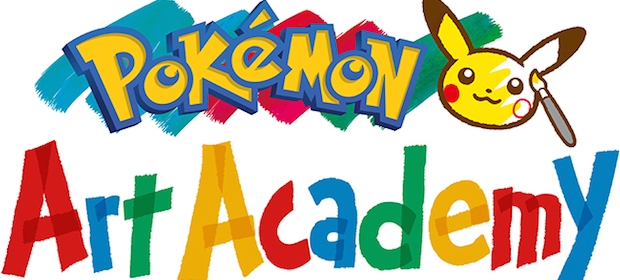The core Pokémon games are brilliant. There’s no denying the continued popularity of the genre, and the latest editions are always met with praise and enjoyment and the fan base is huge and dedicated.
Pokémon spin-offs are often like spin-offs from popular films or TV shows: new ideas that try to hold on to what made the main show so loved, but try something new to make it stand out, with varied degrees of success. Pokémon spin-offs share this methodology and have historically been hit and miss in their execution. So how does Pokémon Art Academy fare? Is it an old master, or a paint-by-numbers disaster
 Firstly, those expecting any kind of battling, capturing, breeding or exploring should step away from the 3DS. This is more akin to the delightful Pokémon Snap on the N64 than the main series. In all honesty, this is all but Art Academy with familiar Pokémon faces, but this is by no means a bad thing.
Firstly, those expecting any kind of battling, capturing, breeding or exploring should step away from the 3DS. This is more akin to the delightful Pokémon Snap on the N64 than the main series. In all honesty, this is all but Art Academy with familiar Pokémon faces, but this is by no means a bad thing.
It’s charming from the outset. You are the newest student to join the Pokémon art academy, hoping to one day to be good enough to draw Pokémon on the trading cards themselves. Your teacher (who wears a red cap very similar to a certain plumber) instructs you in the form of lessons to teach you how to use the various pens and brushes and colours to produce mini works of art, with the difficulty increasing with every lesson.
In the main lessons, you will learn various techniques on how to draw and colour preset Pokémon. As you draw more and learn new skills you unlock other lessons and challenges. The lessons are very well broken down and the guides are excellent, and there is a real sense of achievement in seeing your Pokémon finished.

The “free draw” mode allows you to pick a Pokémon to draw without any guidance whatsoever, essentially a free rein to do as you wish. You have the choice to draw with a guide picture or without and it’s a real test of the skills you have accumulated.
The “quick draw” mode is the weakest of the three, allowing you to draw using solid colour shapes and guidelines, and without the need to select the colours. It’s less enjoyable than the other two modes, but still fun for a very quick blast of Pokémon art academy.
The interface is very simple to use, and it becomes second nature to change your colours and brushes, zoom in and out and even undo your mistakes after a short while of playing. The lessons do their best to guide you and it never frustrates. Being an old fogey who prefers a pencil and paper over this digital magic, I found the tools very easy to become accustomed to and, all in all, Pokémon Art Academy is a very relaxing game.
 The only frustrating area of the game is the speed in which you have access to the lessons. You have to learn them all as you go without the ability to jump from the novice lessons to the more advanced lessons more quickly. This can mean being forced to draw Pokémon just to unlock the next level. I know it’s trying to link the “catch ’em all” Pokémon mantra, but I’d have liked the choice to decide how quickly I progressed, not have it dictated to me. Though, in fairness, every picture is fun to draw.
The only frustrating area of the game is the speed in which you have access to the lessons. You have to learn them all as you go without the ability to jump from the novice lessons to the more advanced lessons more quickly. This can mean being forced to draw Pokémon just to unlock the next level. I know it’s trying to link the “catch ’em all” Pokémon mantra, but I’d have liked the choice to decide how quickly I progressed, not have it dictated to me. Though, in fairness, every picture is fun to draw.
It’s also not entirely clear how you earn your gold, silver and bronze medals for each picture you complete, though to be honest, it doesn’t seem to be something that really impedes your progression.
 I’m not sure owners of other Art Academy games will see the value in investing in a spin-off, even though it’s the kind of game you can easily play for hours to relax – and you’ll get a real sense of achievement to boot. It’s extremely well designed, well presented and charming to play – it’s even had me consider buying one of those proper electric drawing tablet things.
I’m not sure owners of other Art Academy games will see the value in investing in a spin-off, even though it’s the kind of game you can easily play for hours to relax – and you’ll get a real sense of achievement to boot. It’s extremely well designed, well presented and charming to play – it’s even had me consider buying one of those proper electric drawing tablet things.
VERDICT: Pokémon Art Academy is a polished, enjoyable time sink, with intuitive controls. It’s very easy to pick up and play, and uses the Pokémon licence well to introduce a new group of potential artists to the Art Academy series.

VERY GOOD. An 8/10 is only awarded to a game we consider truly worthy of your hard-earned cash. This game is only held back by a smattering of minor or middling issues and comes highly recommended.
Review code provided by publisher.





